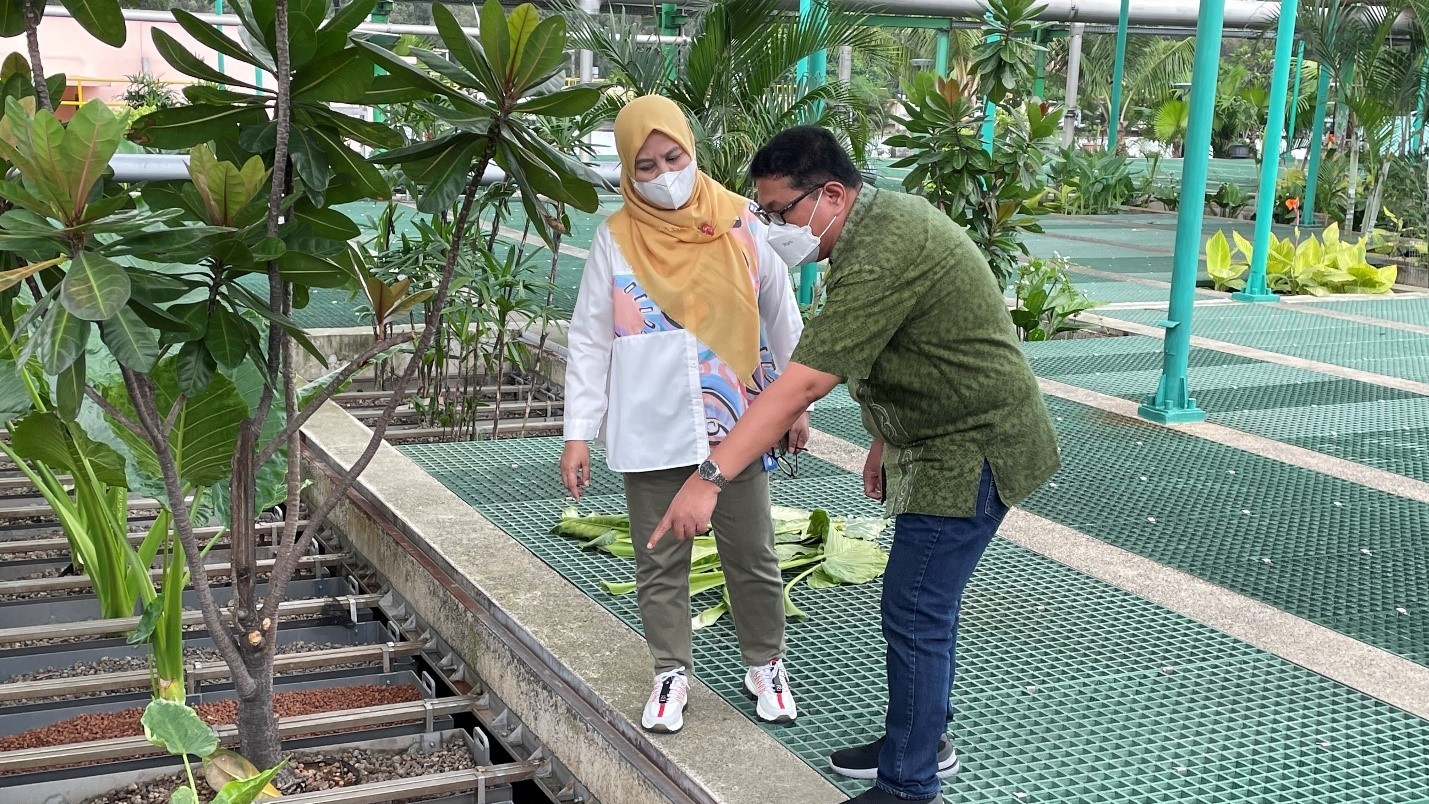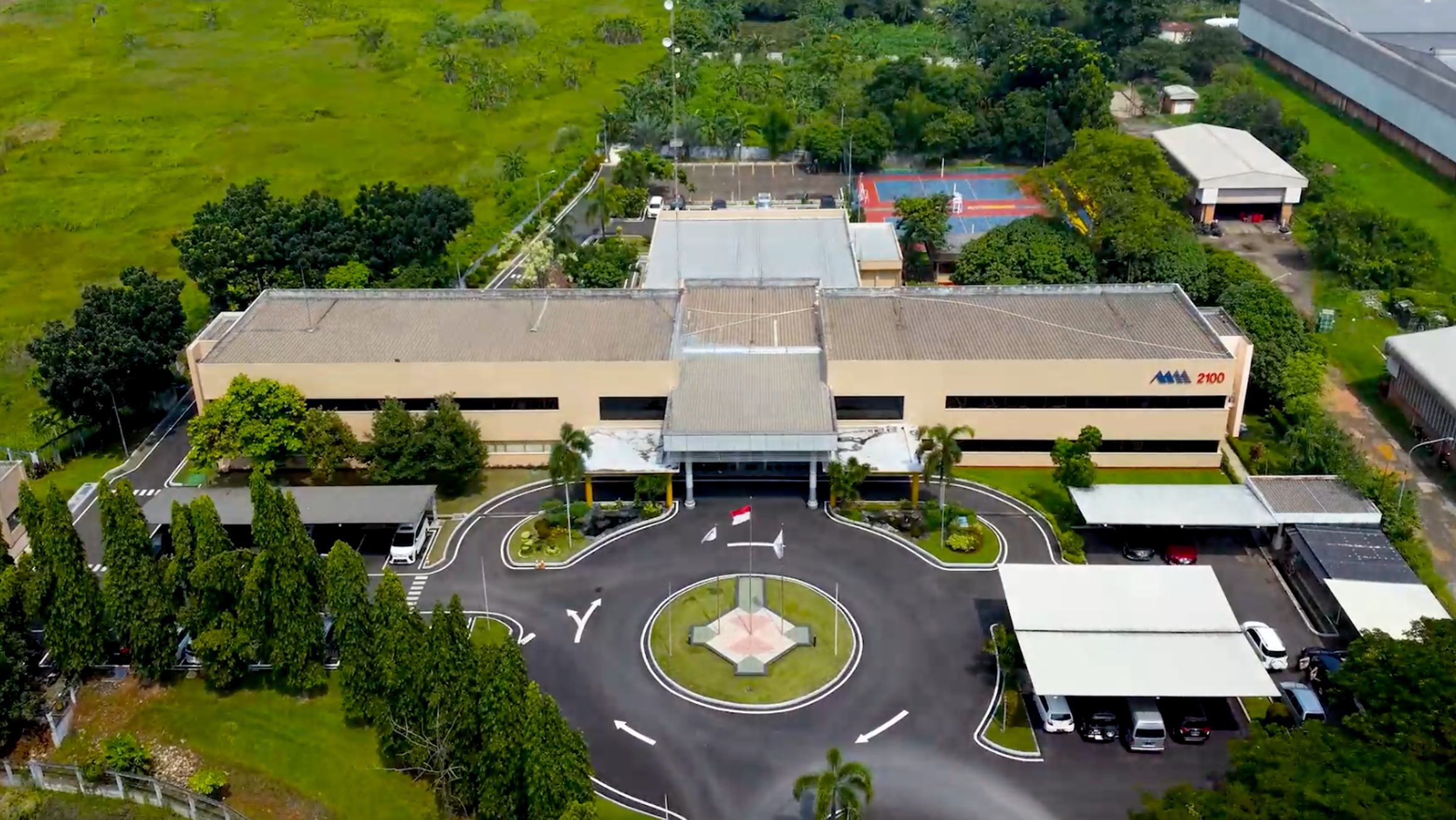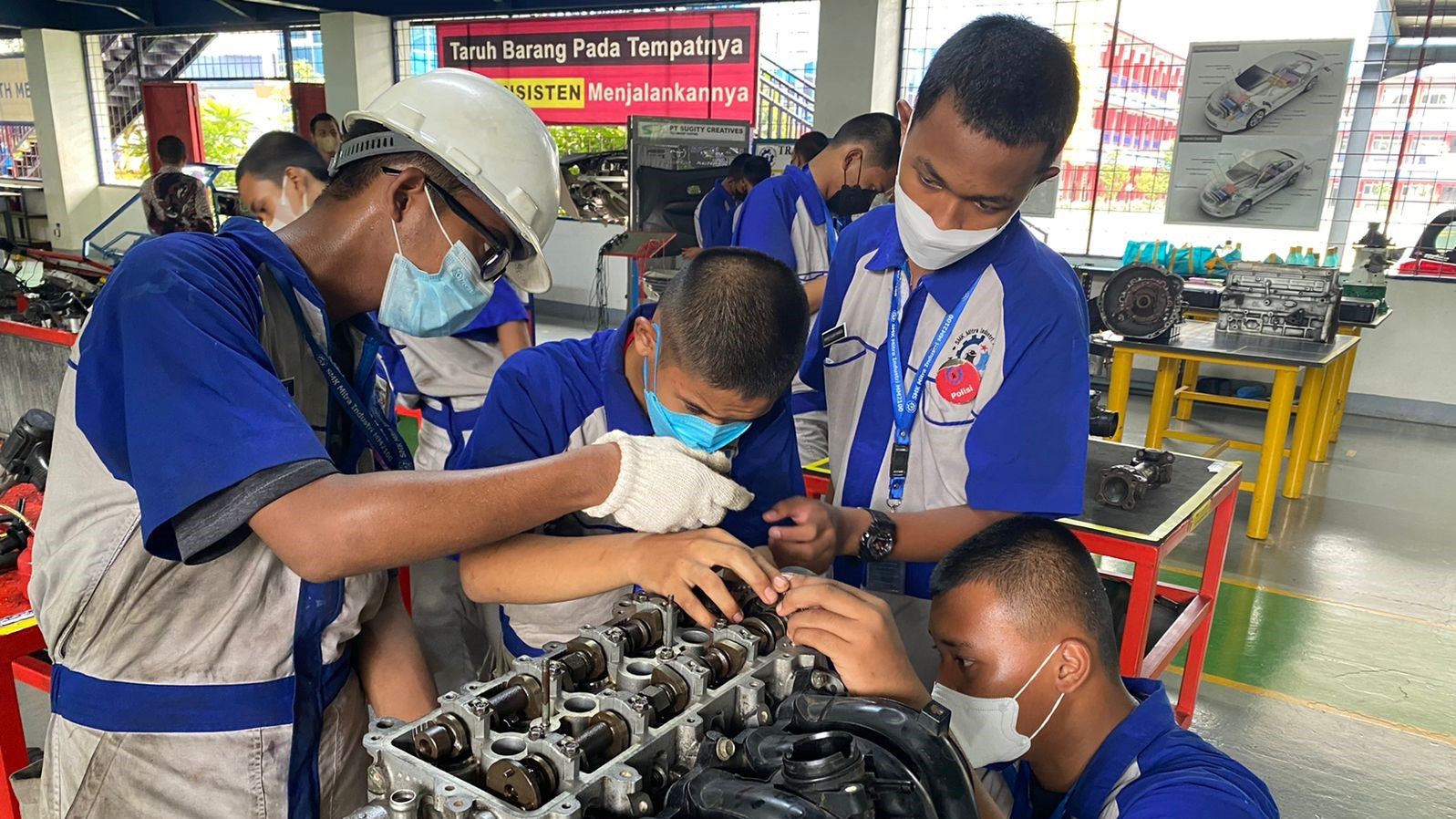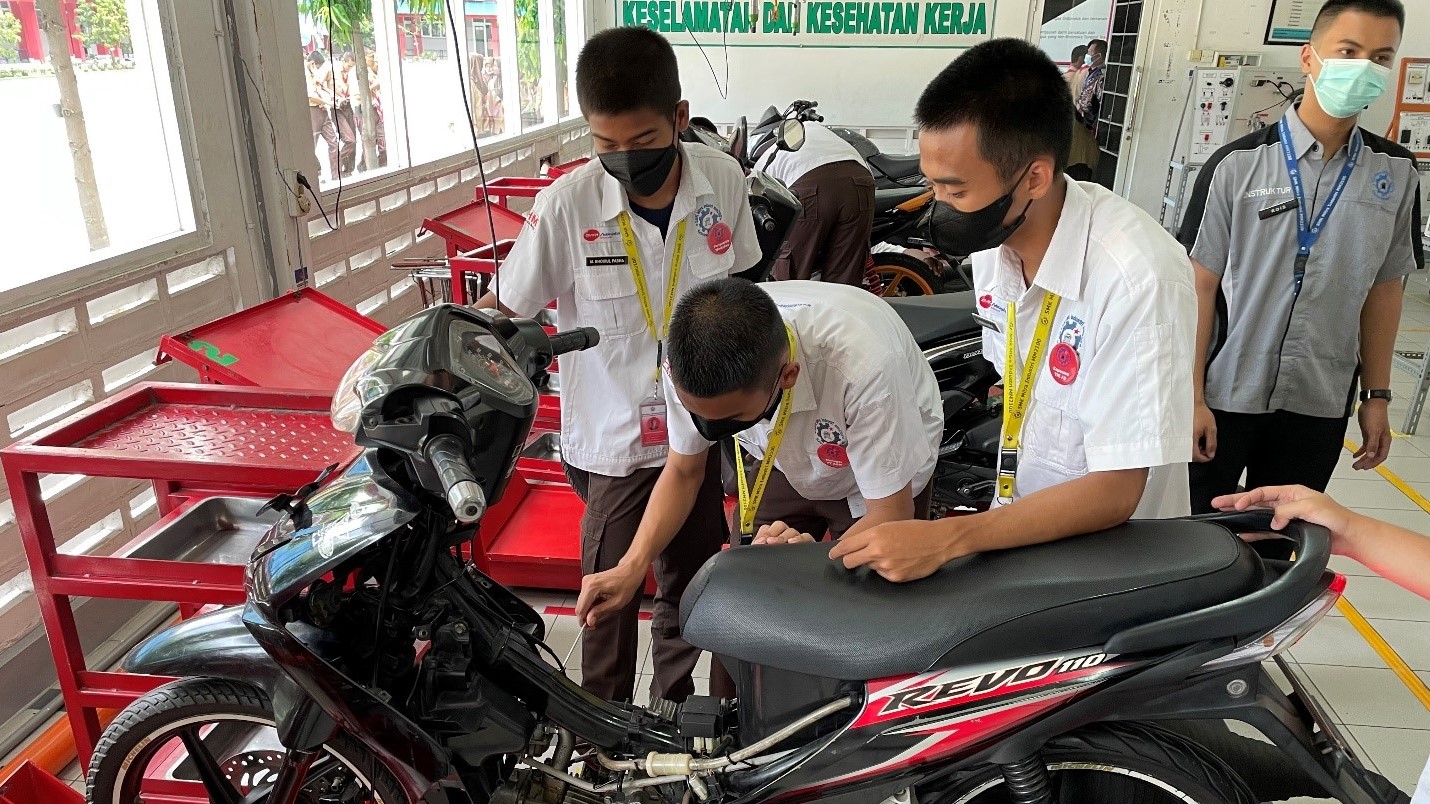

Eco-industrial parks take a foothold in Indonesia
12 December 2022 UN team in Indonesia

Bucolic palm trees, manicured grass, a students’ choir greeting visitors – not one’s typical mental image of an industrial park. But MM 2100 Industrial Town, just outside Jakarta, is not your typical industrial park either. Or at least not yet. The United Nations Industrial Development Organization (UNIDO) has been supporting MM 2100 and has also been working, since July 2020, with the Ministry of Industry on a roadmap to create an incentivizing regulatory environment for industrial parks to become, like MM 2100, eco-industrial parks.
Just last month, UNIDO facilitated the issuance of a ministerial decree, establishing an inter-ministerial forum with the involvement of 11 ministries, led by the Ministry of Industry, to accelerate the development of eco-Industrial parks in the country. “This is an important milestone in order to create a system nationwide,” said Eko SA Cahyanto, Director General of Industrial Resilience, Region and International Access at the Ministry of Industry.
Indonesia currently has 138 industrial parks, which are the engines of economic growth in the country. Making them greener and more socially responsible will be an important step towards a more sustainable economy, Cahyanto added.
And a lot can be done, as the example of MM 2100 demonstrates.
Landfill use for domestic waste generated in the park has already decreased by between 30% and 40% per month due to our recent initiatives, said Susi Rahmawati, Manager of Customer Service and Legal Affairs.
“We have plans for a new recycling programme for domestic waste that will be more segregated, which is unique,” she said. “This programme, when implemented, will reward workers financially for bringing their household waste to our site for recycling.”
With close to 200 tenants employing a whopping 100,000 workers, the 805-hectare site is like a mini city with its own boulevards, power plant, hospital, banks, post office, restaurants and even a four-star hotel. Its latest initiatives include a composting programme and equipping its 1000 streetlights with energy-efficient LED lights. Its wastewater treatment plan, whose effluent is monitored remotely 24/7 by the Ministry of Environment, uses the latest food chain reaction treatment technology, installed only two years ago.

“We had a vision to be ecologically friendly from the outset,” said Tanaka Keisuke, the park’s Director. “But it takes expertise, patience and the right regulatory environment to make some of the changes.” The park is majority Japanese owned, and close to two thirds of its tenants are local subsidiaries of Japanese companies such as Honda, Yamaha, LG Electronics, Mitsubishi and Hitachi. Many tenants work in the automotive parts and electronics sectors.
Building the skills of the future generation
The pride of the park is not the energy efficient lighting or the environmentally friendly wastewater treatment plant though: “Our vocational training school, maintained by our tenant companies on a voluntary basis,” Ms Rahmawati said.
At the vocational school, known as SMK Mitra Industri MM2100, 2500 students learn practical skills in various disciplines: from assembling motorbikes, to programming robots and carrying out housekeeping duties at hotels.
“This will increase their employability, whether at one of the park’s companies or beyond,” she added.

The eco-industrial park concept brings benefits to companies, industrial park management and policymakers by supporting both local and national environmental and resource use goals as well as the economic development of countries, explained Salil Dutt, Chief Technical Adviser at UNIDO’s Jakarta office. “Eco-industrial parks are key drivers for inclusive and sustainable industrial development through working towards better environmental, social and economic performance,” he said.
The project is funded by the Swiss government via the State Secretariat for Economic Affairs (SECO) and supports industrial parks in six other countries as well: Colombia, Egypt, Peru, South Africa, Ukraine, and Viet Nam.
Working in complementary ways across the government
MM 2100 scores high against the International Framework for Eco-Industrial Parks, developed by UNIDO, the World Bank and Germany’s international development agency, GIZ. However, it would now be hard for it to further improve its performance under the framework, given the policy and regulatory constraints in place, Dutt said. For instance, its treated industrial wastewater cannot currently be re-used in the park itself but needs to be discharged into a local river, which means the park cannot decrease its freshwater use.
One issue is that regulations for various activities for industrial park are covered by several ministries and departments at the central and regional levels, and improvements often require consensus from many stakeholders within the government. With the new inter-ministerial forum established to accelerate the development of eco-industrial parks, various ministries can now work together in order to jointly review policies and regulations and make changes as necessary. At the first meeting of the inter-ministerial forum this week, representatives agreed to review the regulations within each ministry’s competence and propose changes.
“With the right governance model now in place, we expect an improved business environment for industrial parks within the next two-three years,” said Cahyanto.
Work on the ground will proceed in the meantime. In the three pilot industrial parks UNIDO is working with, MM2100, Batamindo Industrial Park in Batam and Karawang International Industrial City in West Jawa, a total of 25 tenant companies joined to implement UNIDO’s Resource Efficient and Cleaner Production approach and to explore industrial synergies to improve their environmental, social and economic performance beyond compliance, Dutt said. In the next phase of the project, UNIDO will extend support to two more parks.
“We are making progress step by step and will continue our work to create an enabling environment through developing a conducive policy and regulatory framework and at the same time showcasing the benefits of what transformation into eco-industrial parks means in practice,” Dutt said. “The changes are tangible – and will scale thanks to the government’s holistic approach.”
